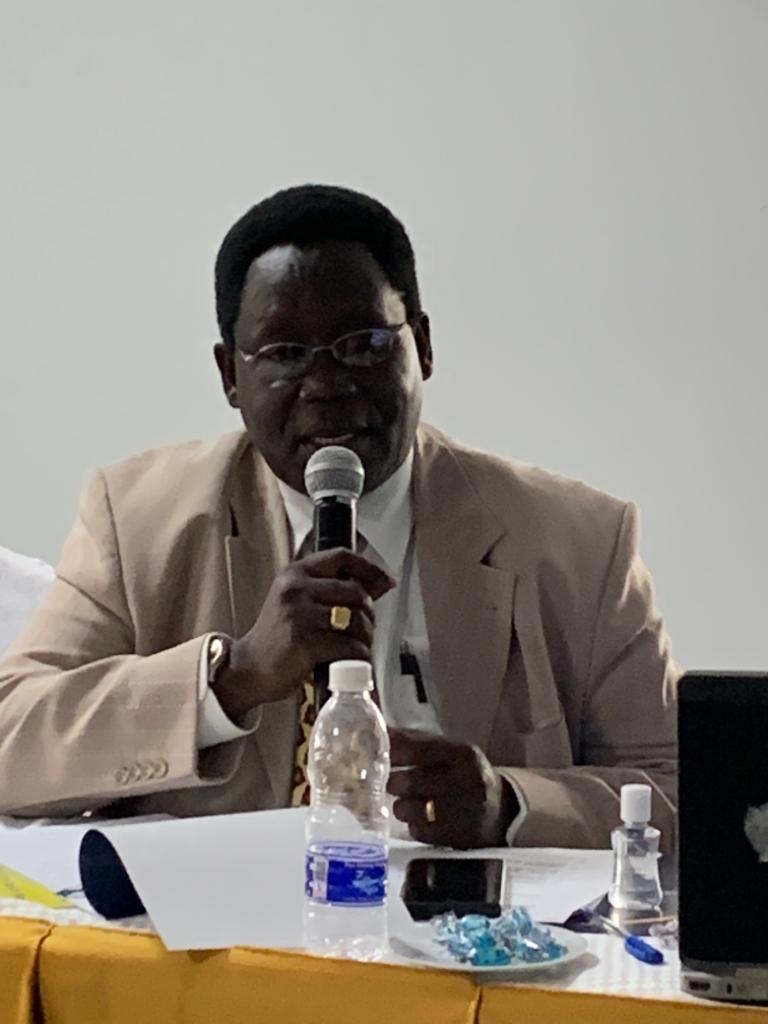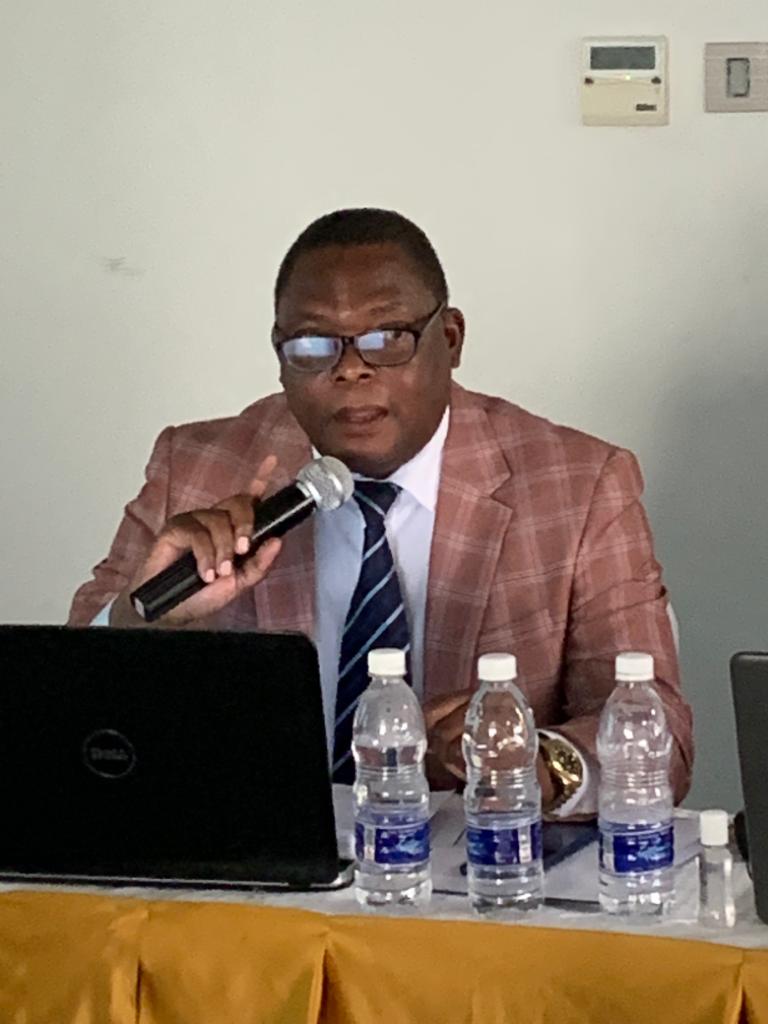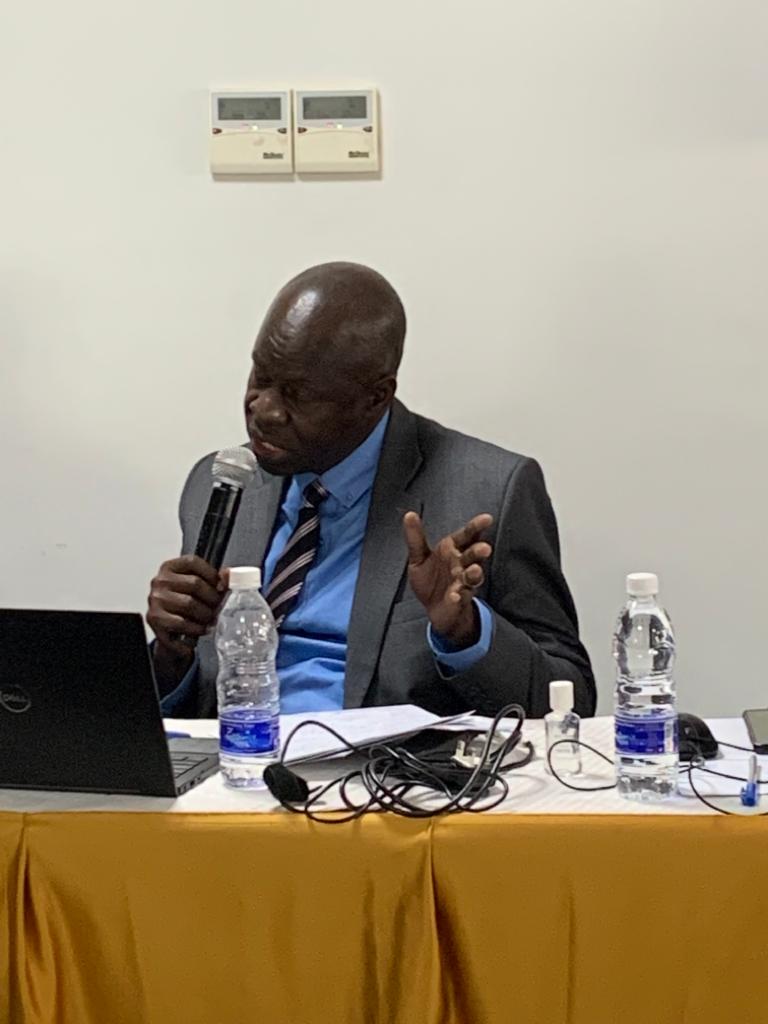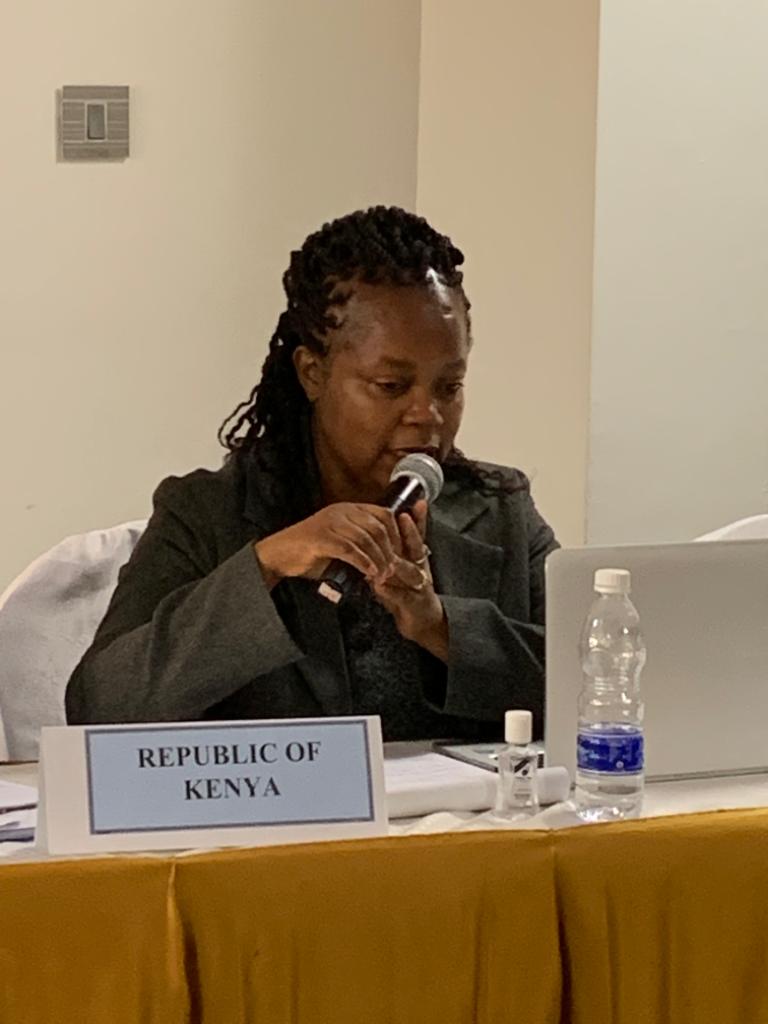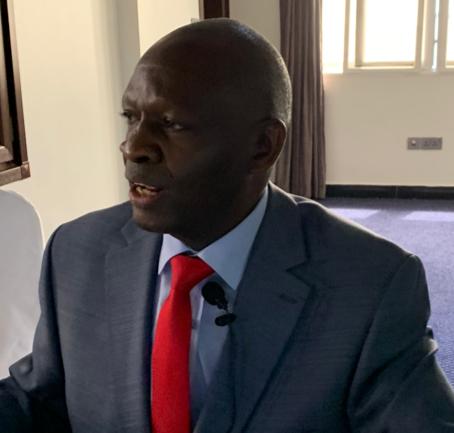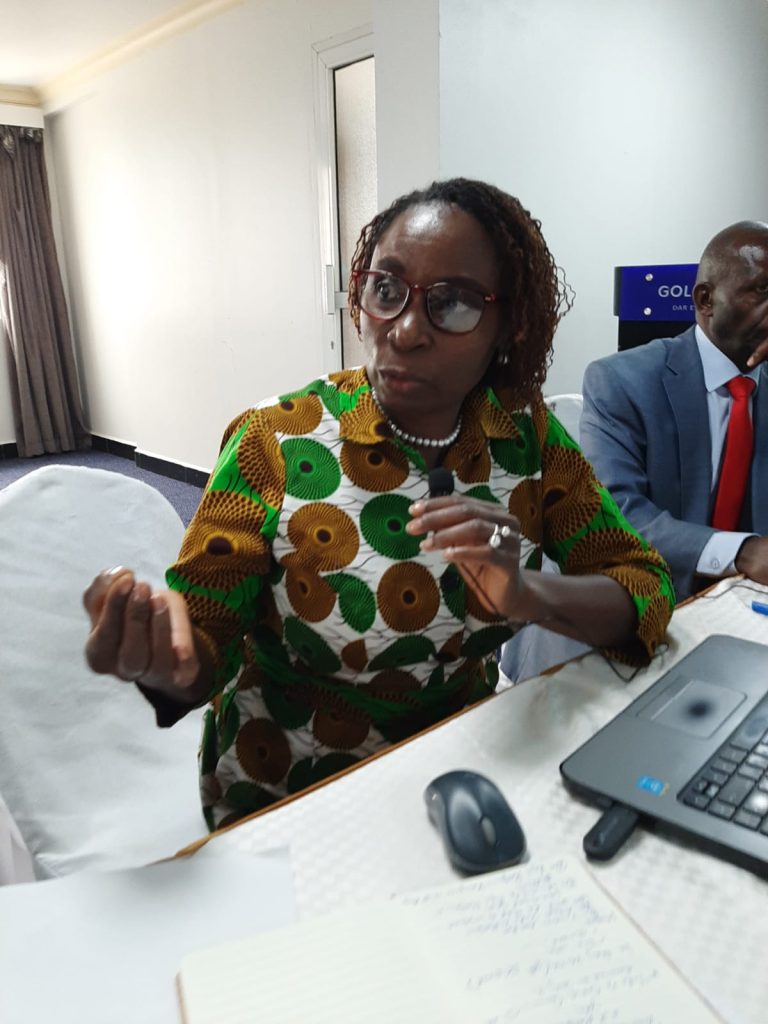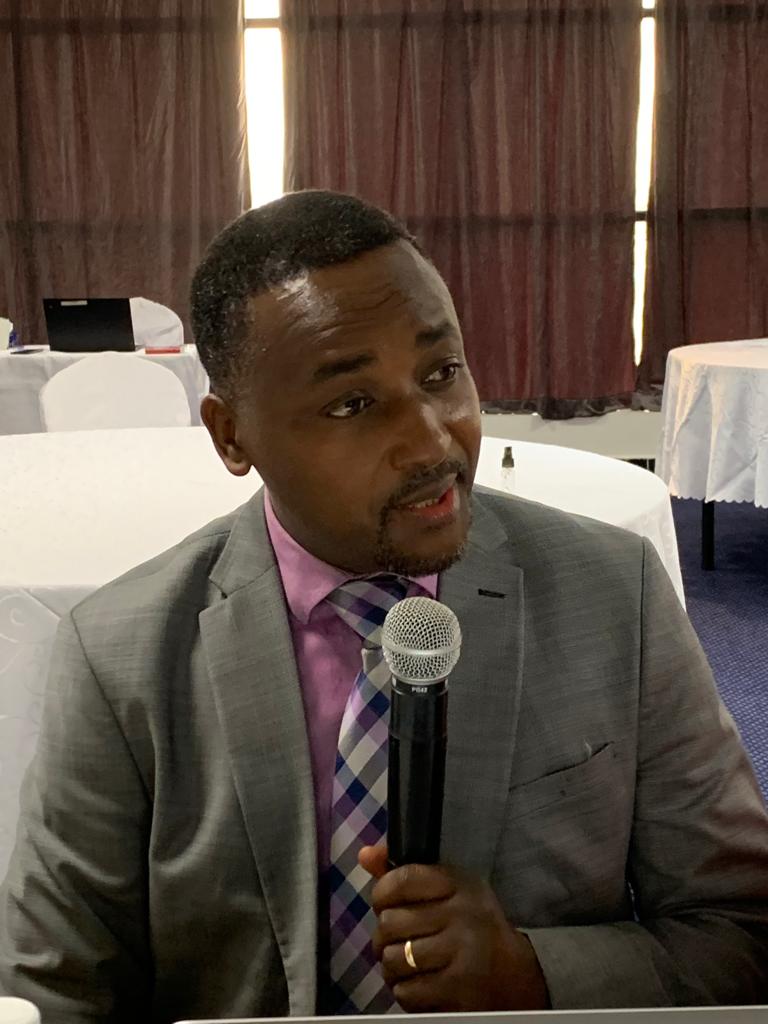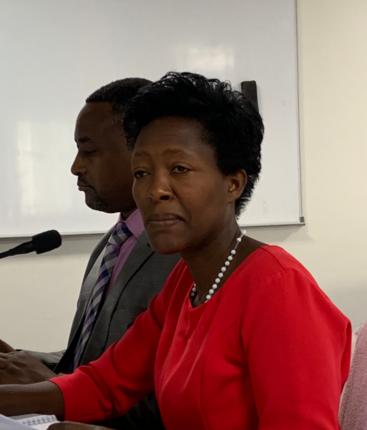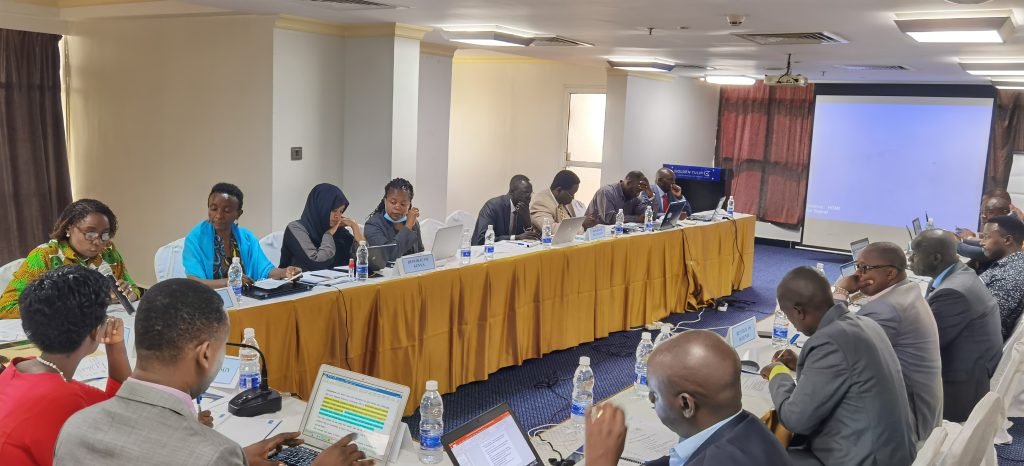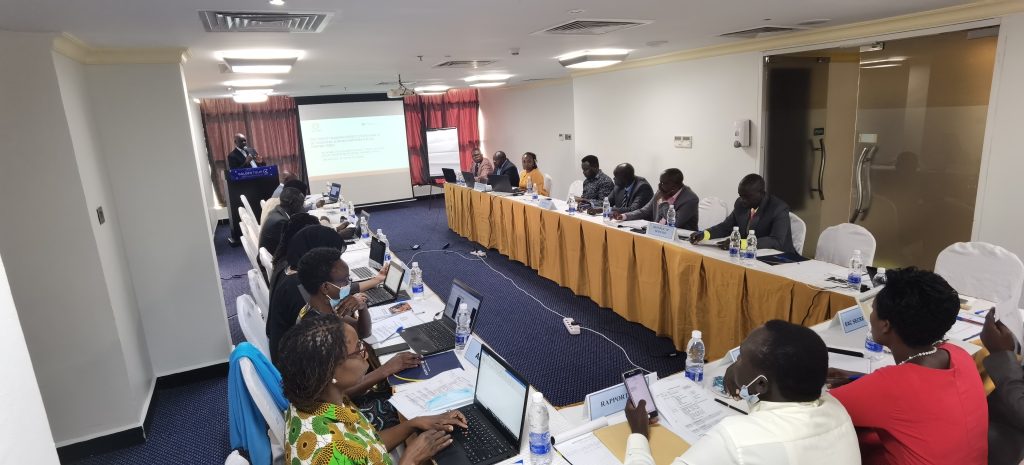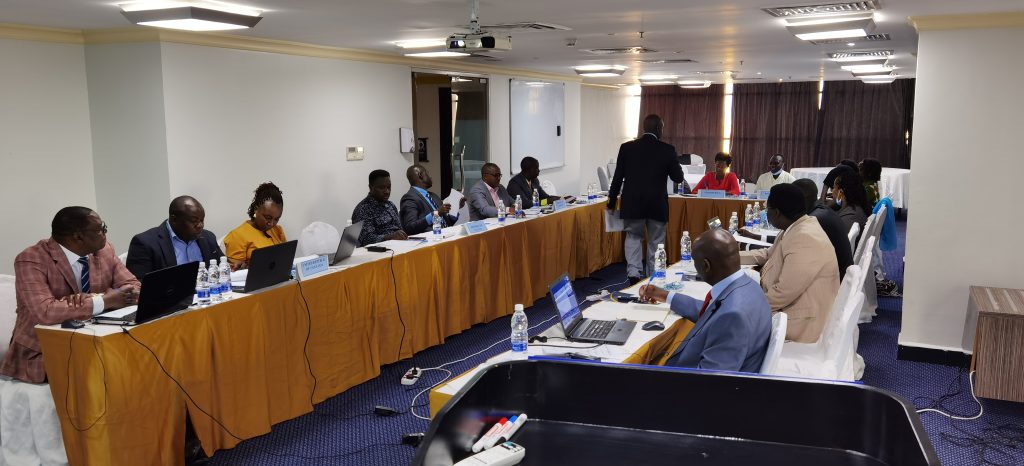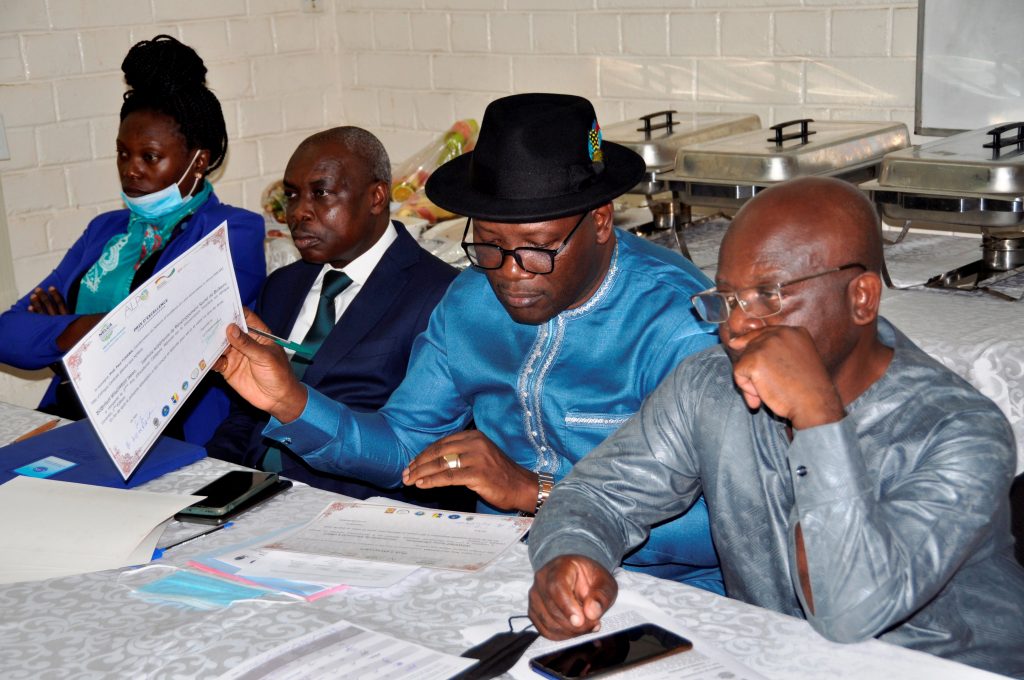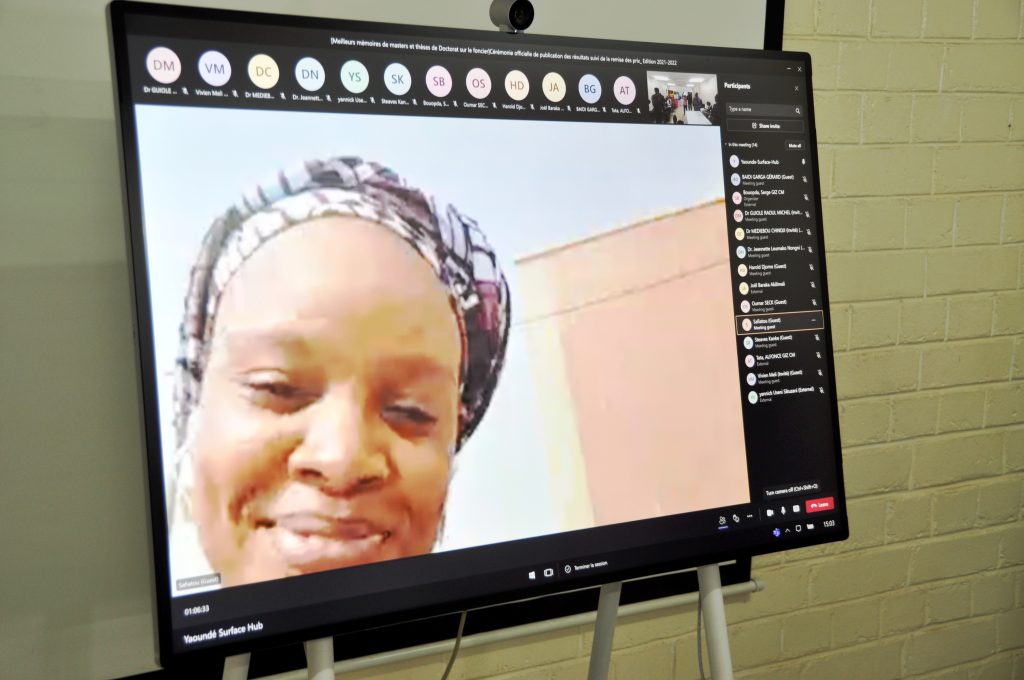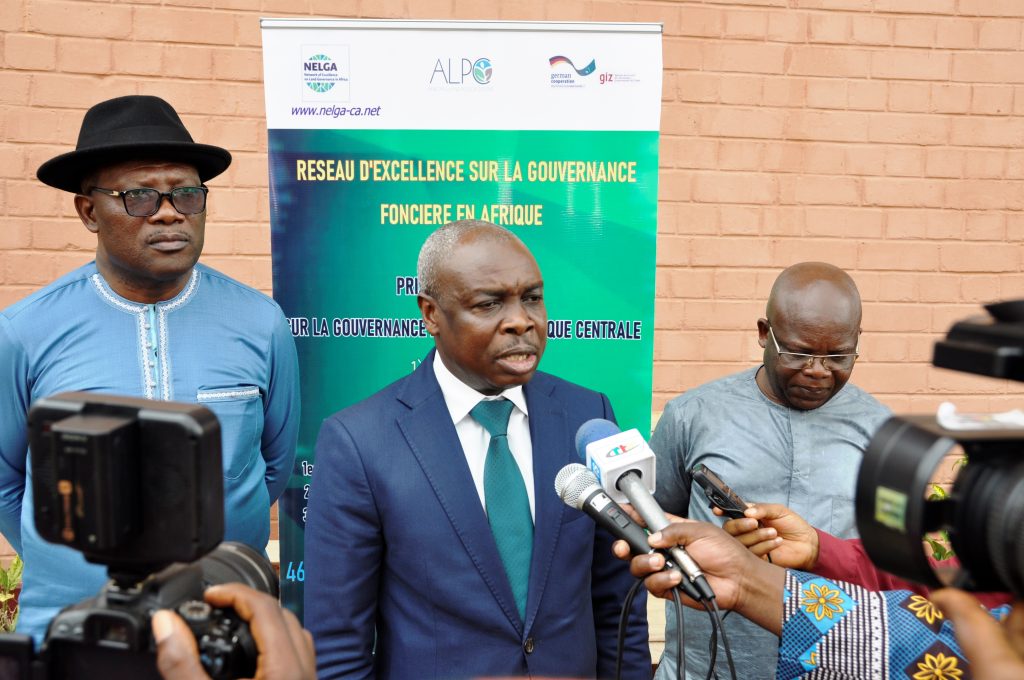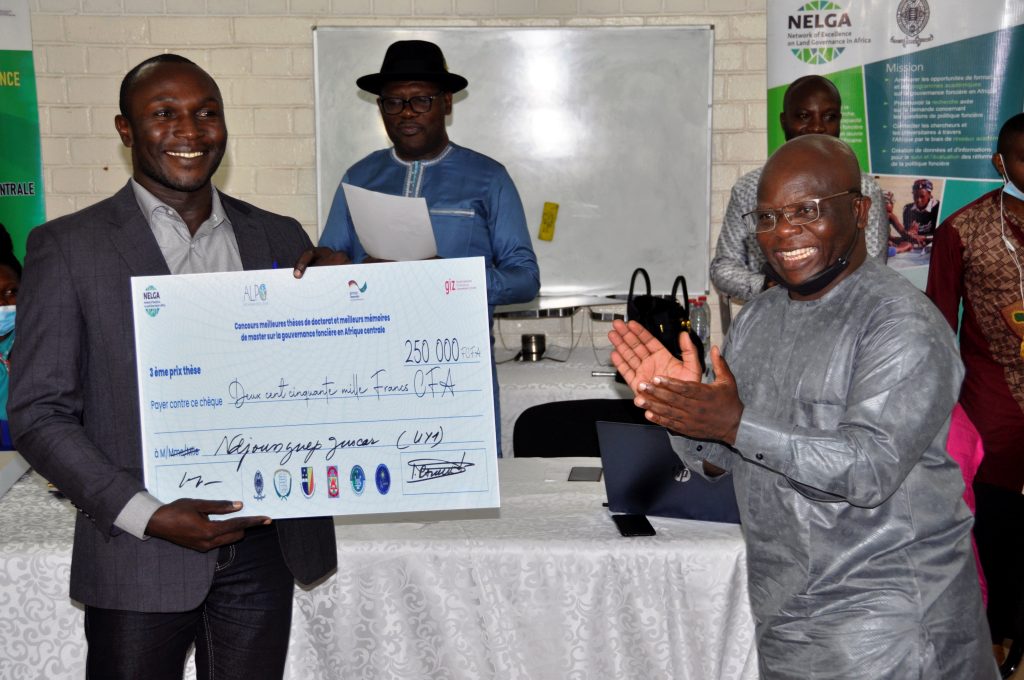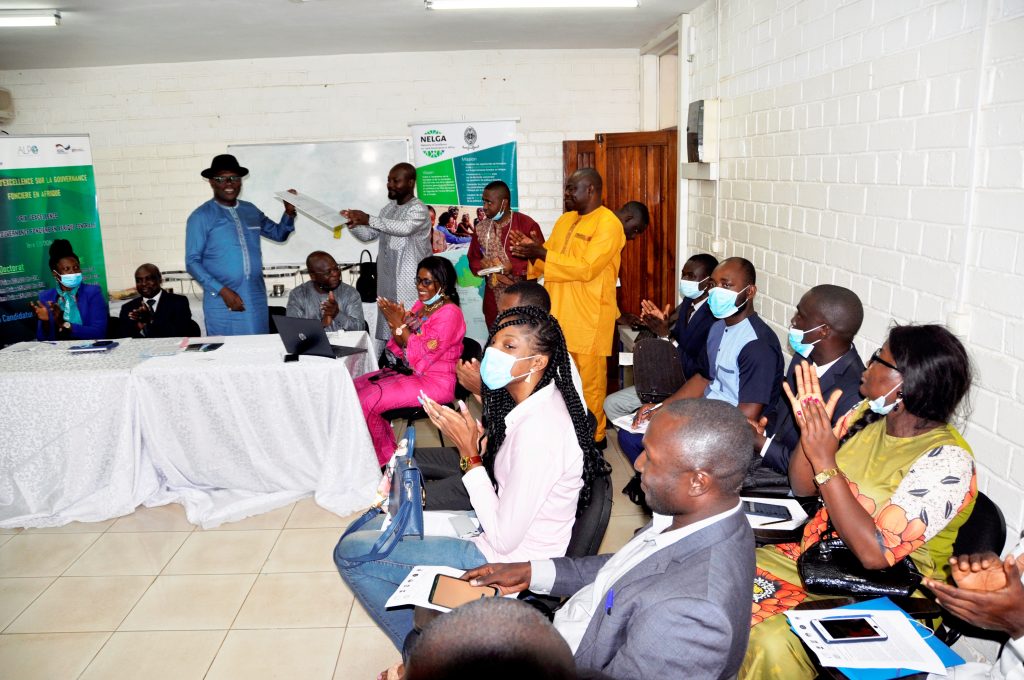Category: Uncategorized
NELGA Review Meeting: Taking stock of 5 years of Progress in Meeting the AU Land Agenda
Five years after the launch of the Network of Excellence on Land Governance in Africa (NELGA), some 20 representatives of the network gathered in Windhoek from 27-30 September 2022 to discuss progress in implementing the African Union (AU) Land Agenda. Many agreed that much progress had been made in building the capacity of institutions of higher learning and research to enhance training and research that responds better to the demands of member states. It is now essential to focus on scaling up curricula development, training, research and dissemination of knowledge on priority issues.
The planning and review meeting offered an excellent opportunity to take stock of how NELGA capacity building, data repository, knowledge management, and policy engagement actions support national and regional land gaps and priorities in meeting the AU Land Agenda. The meeting, convened by AUC-ECA-AfDB’s African Land Policy Centre, marked the first official internal gathering of the continental network since the onset of the COVID-19 pandemic.
The members commended the outcomes and wealth of knowledge from years of work, especially on policy engagement, and encouraged members to develop plans that facilitate engagement with key decision makers, including all arms of government, civil society, etc. In planning the future of the network, members called on ALPC, its technical partners, GIZ and the nodes to develop agreements among all parties to facilitate operations and ensure result convergence on land governance priorities on the continent. Participants called on the NELGA secretariat to develop a continental research agenda and policy dialogue framework based on identified priority areas by the AU.
The meeting hosted by Namibia University of Science and Technology (NUST), the NELGA node for Southern Africa, had participants from NELGA regional hubs, implementing partners, academic institutions, GIZ as a technical partner and international organisations. The nodes showcased strides in developing new academic programs, two journals hosted by NELGA North Africa and East Africa, research centres, and land governance innovative tools in the land policy spaces across West Africa, East Africa, North Africa, Central Africa, and South Africa.
The ALPC Coordinator Joan Kagwanja celebrated the achievements; encouraged integrated and participatory approaches to land governance issues, emphasised the network’s importance in meeting the continent’s needs; and called on NELGA to undertake action research that would address emerging land issues and whose results and recommendations could be presented at the AU Specialized Technical Committee on Agriculture, Rural Development, Water and Environment The meeting also examined preliminary findings and provided inputs to the NELGA strategy to ensure the network remains sustainable and scalable.
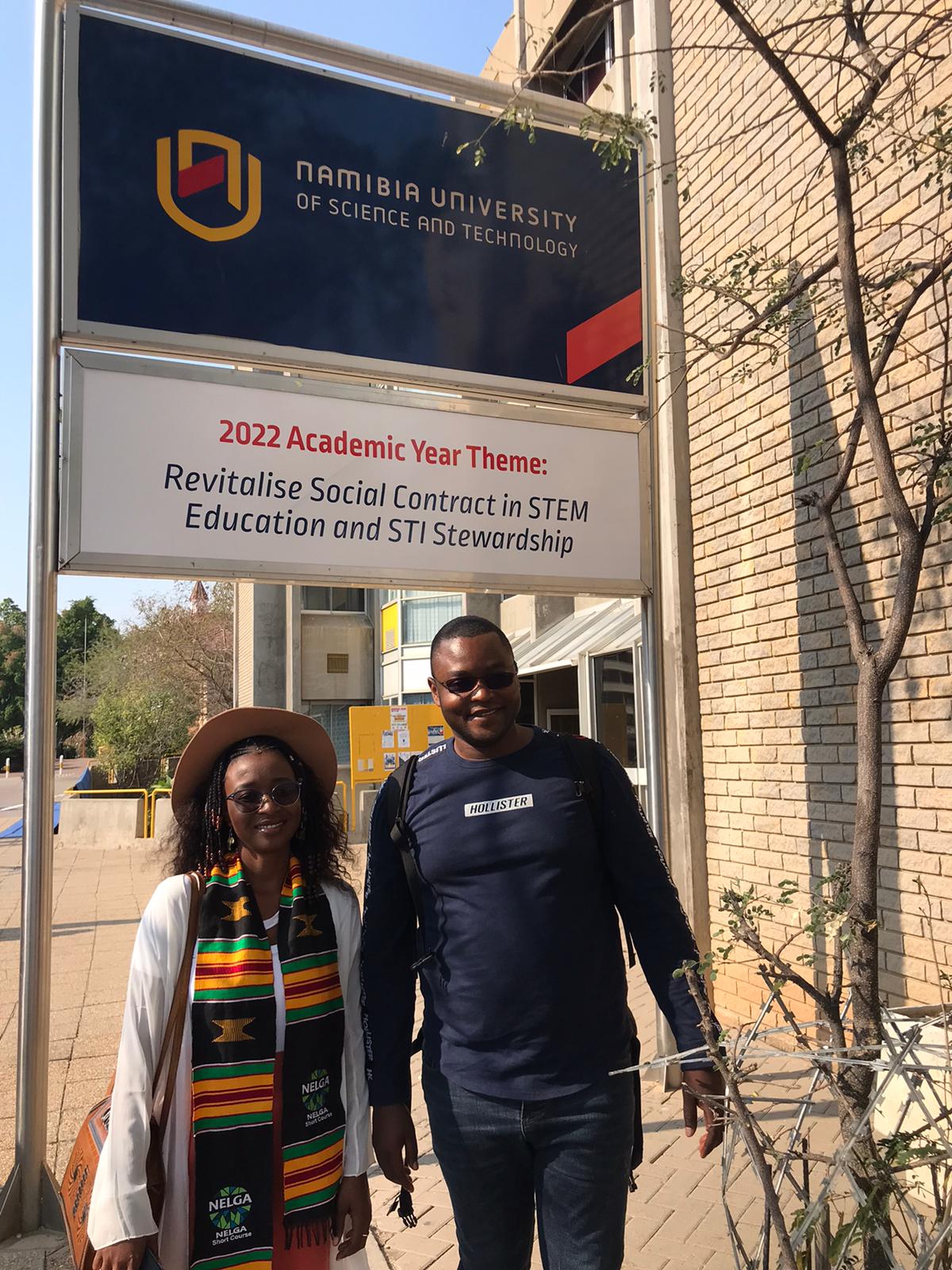
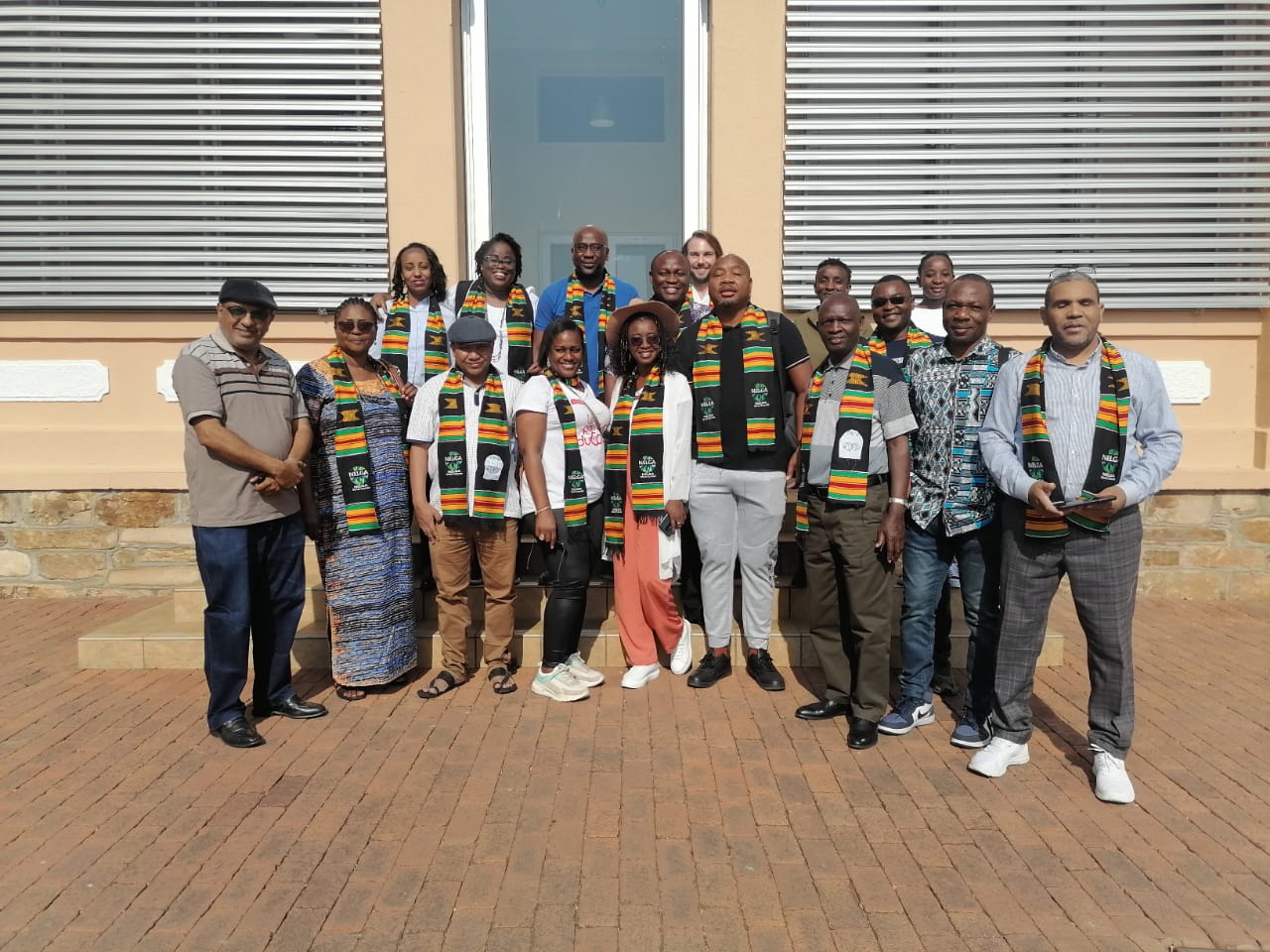
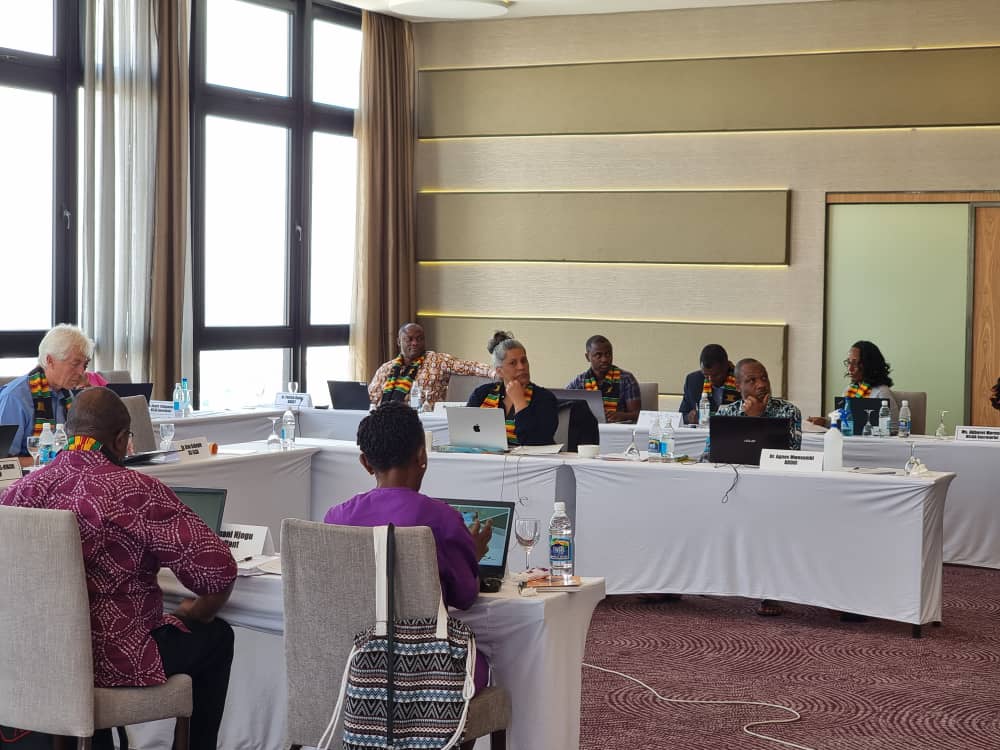
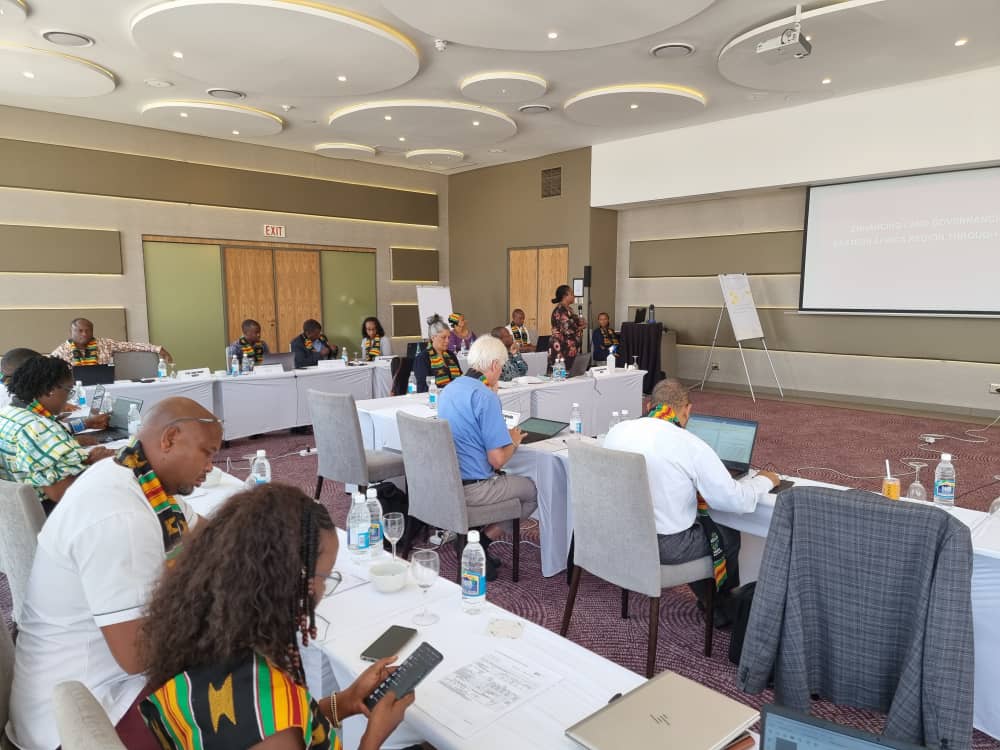
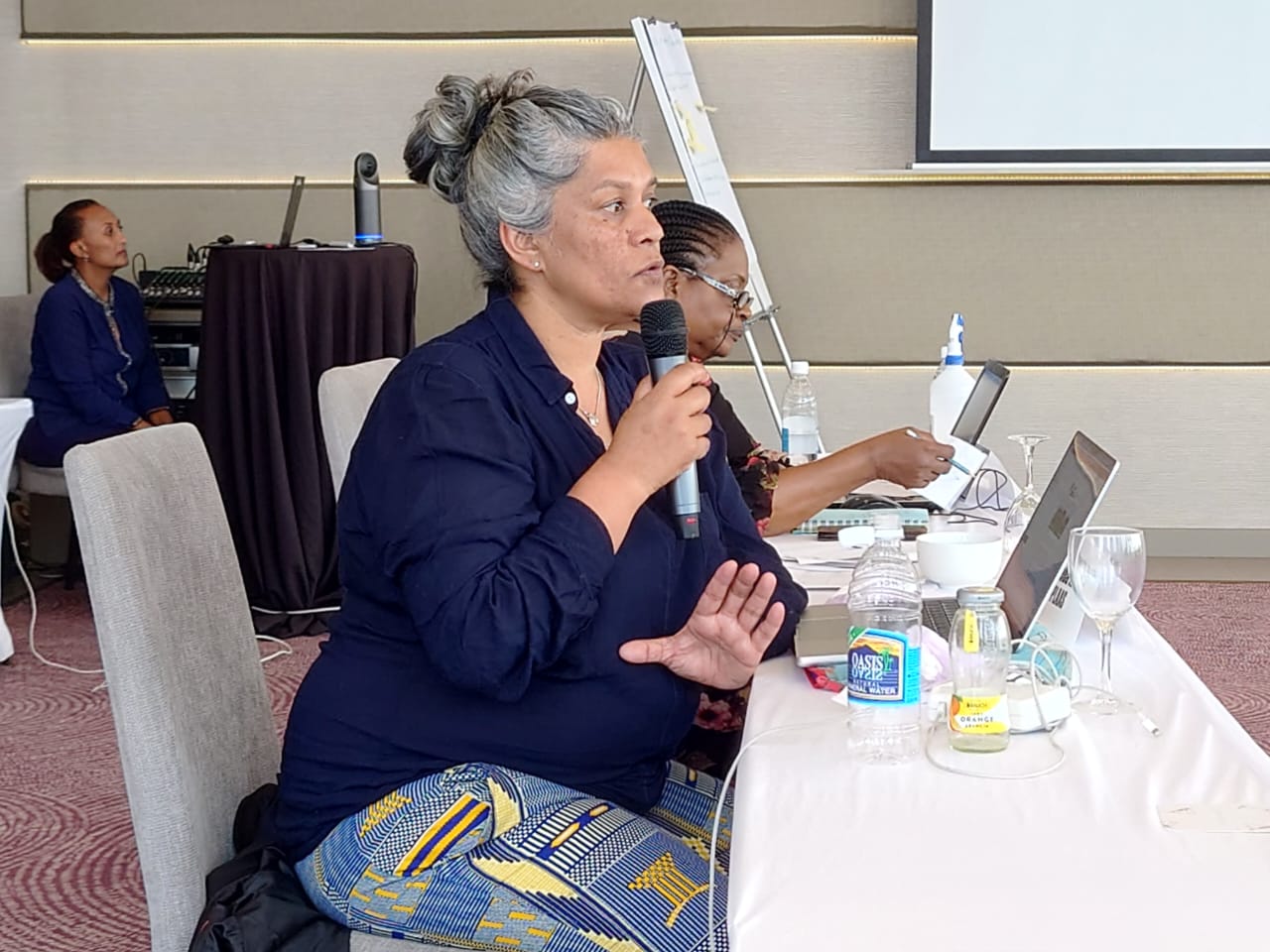
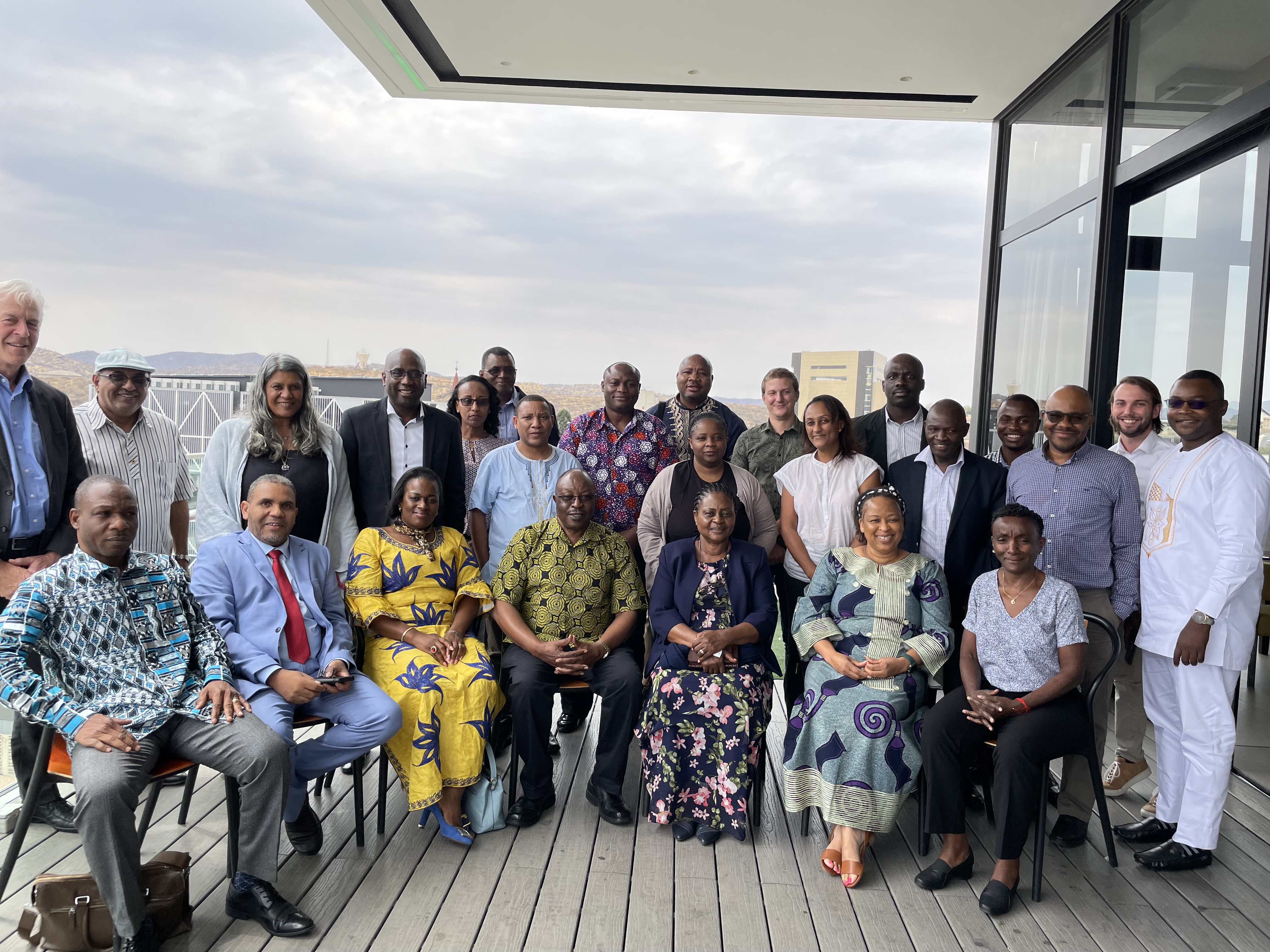
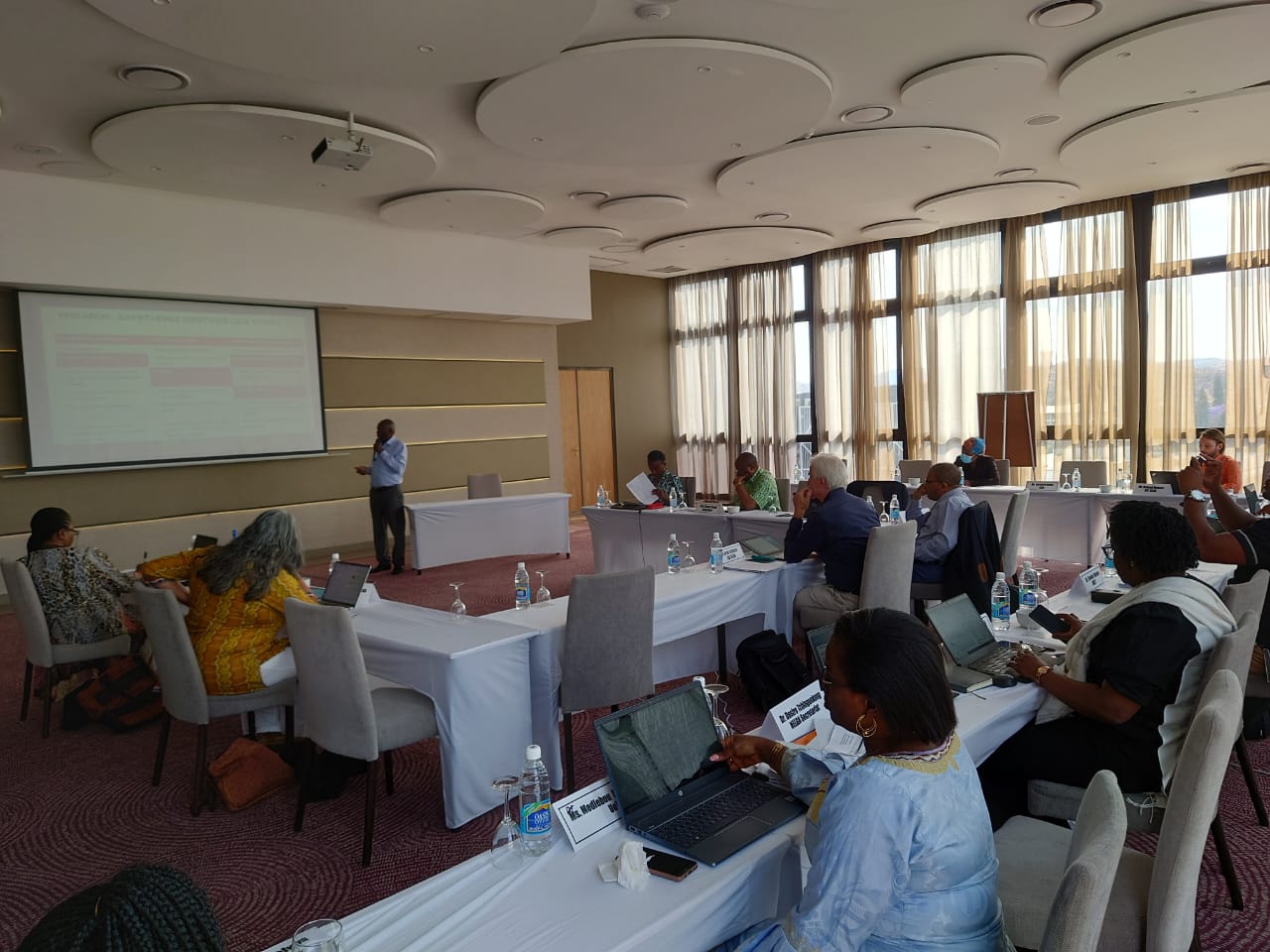
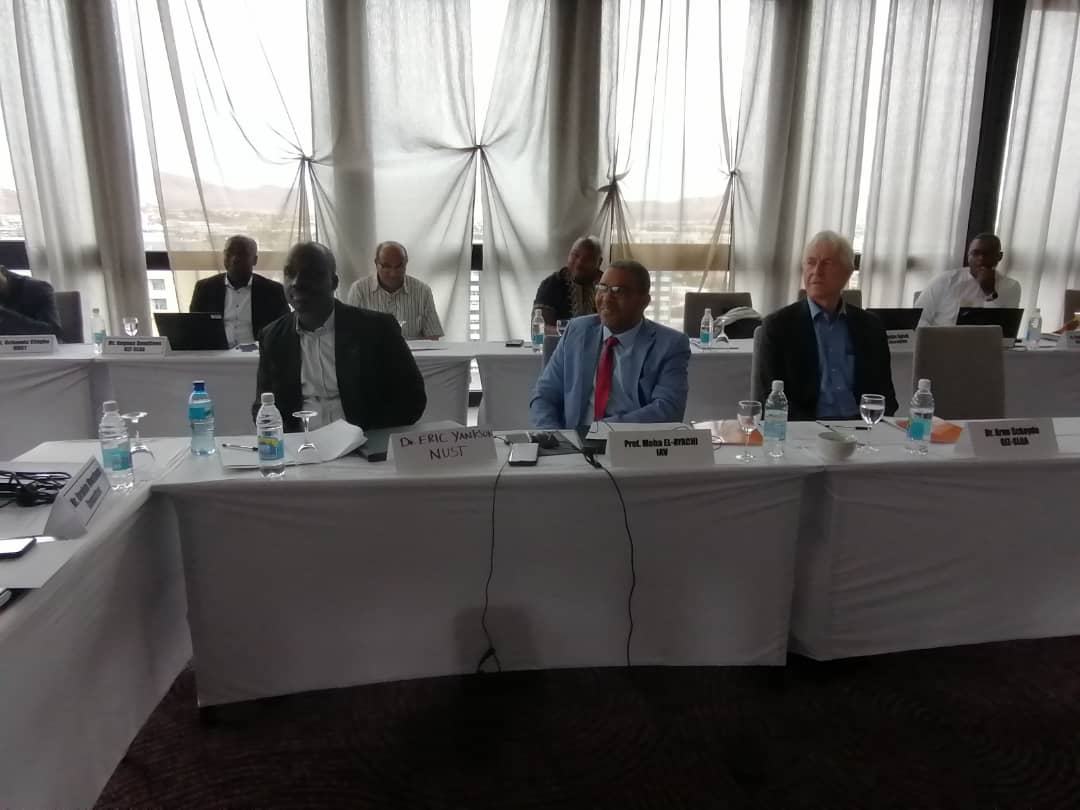
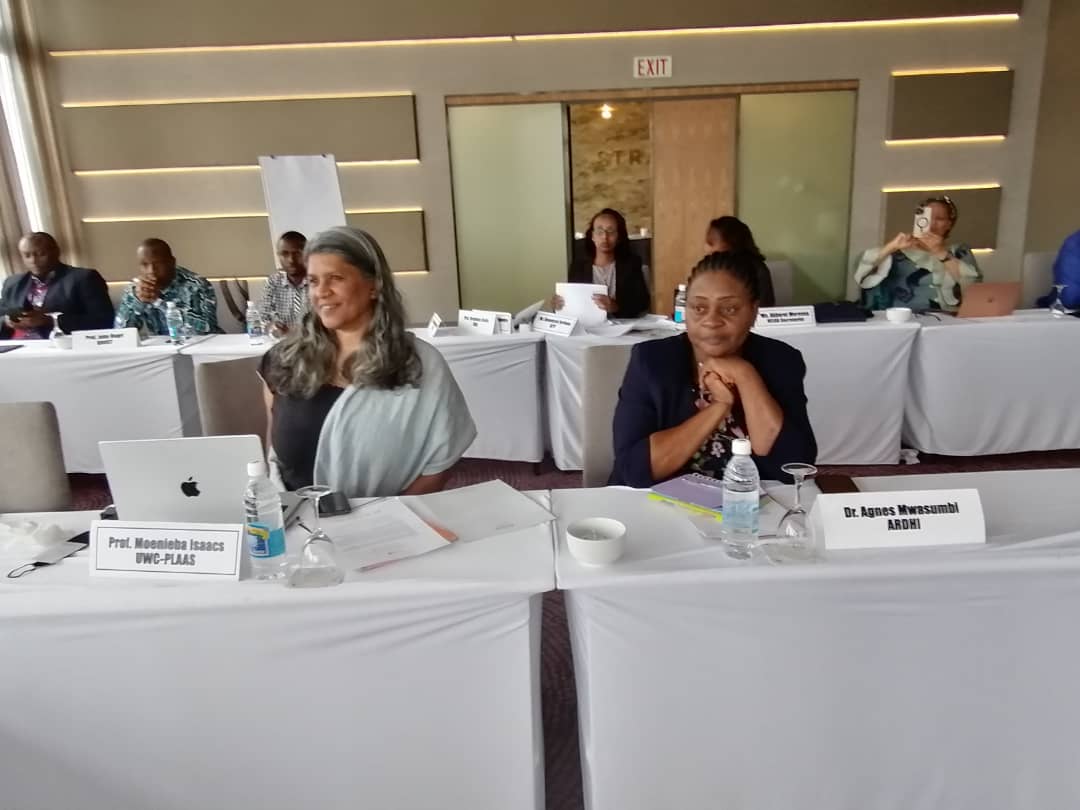
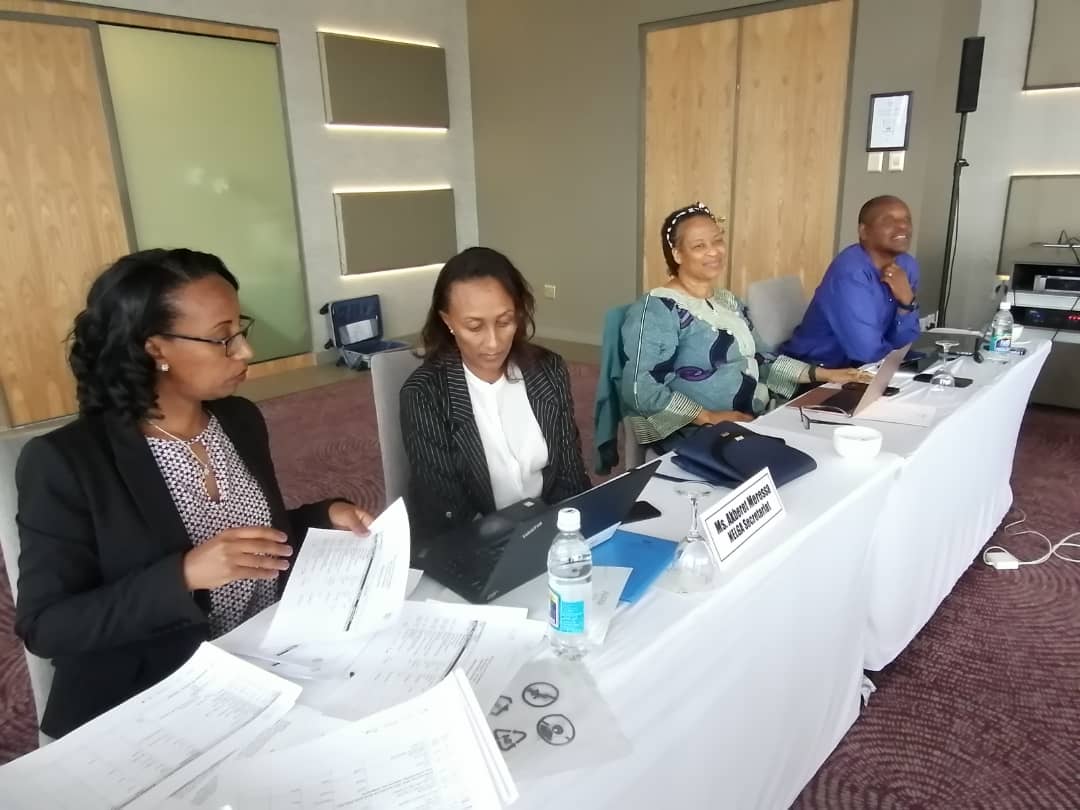
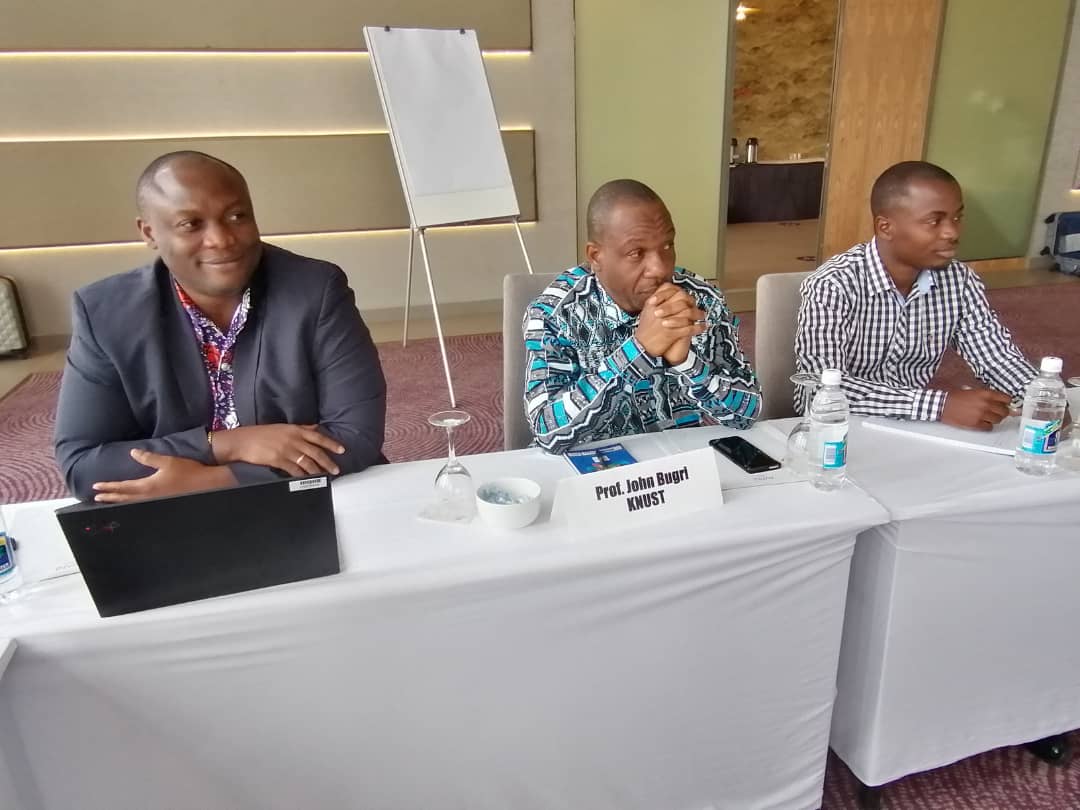
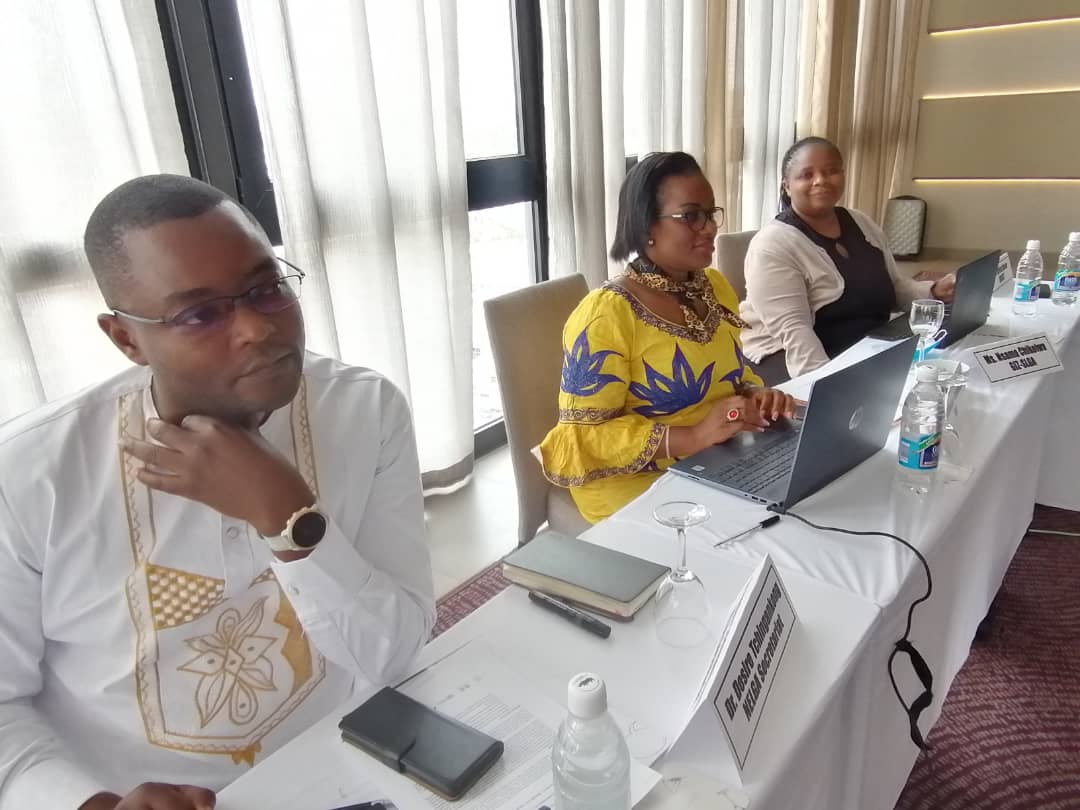
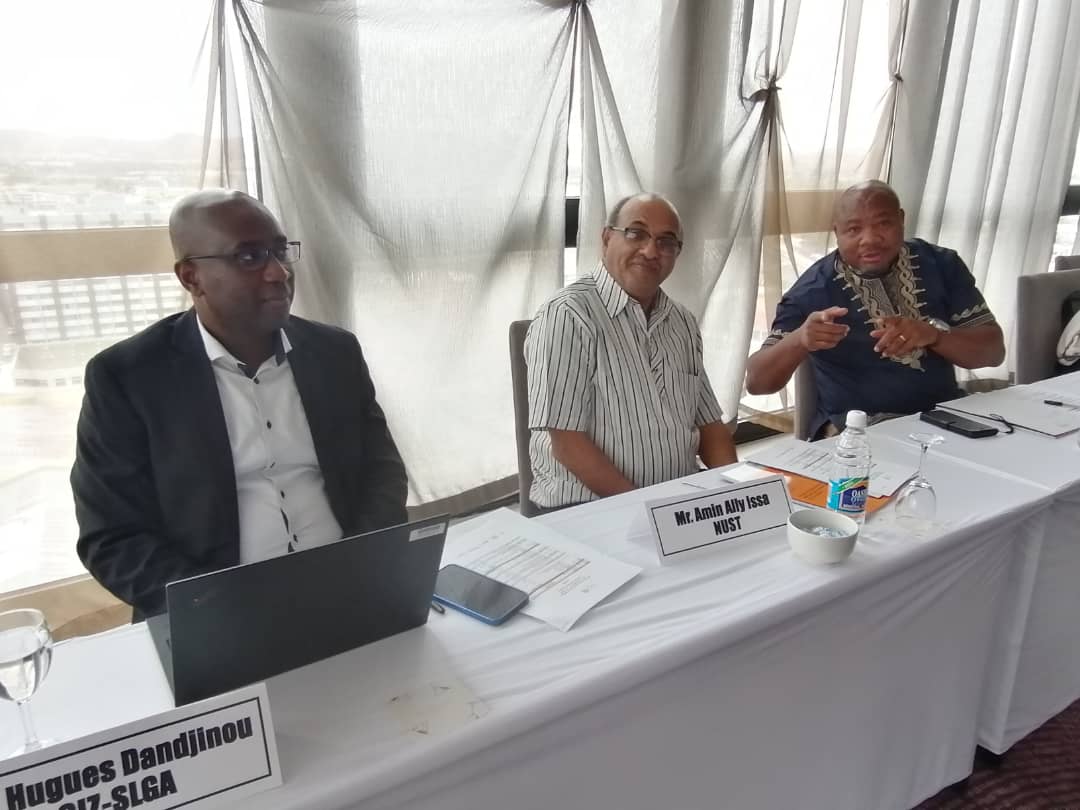
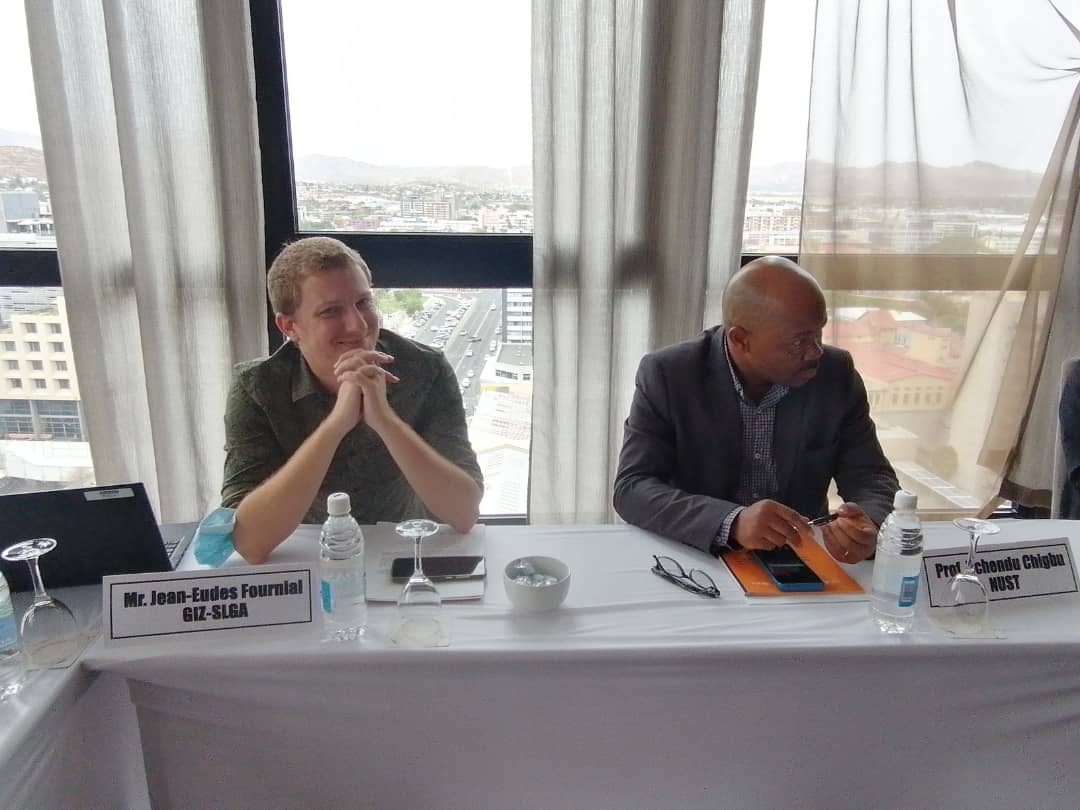
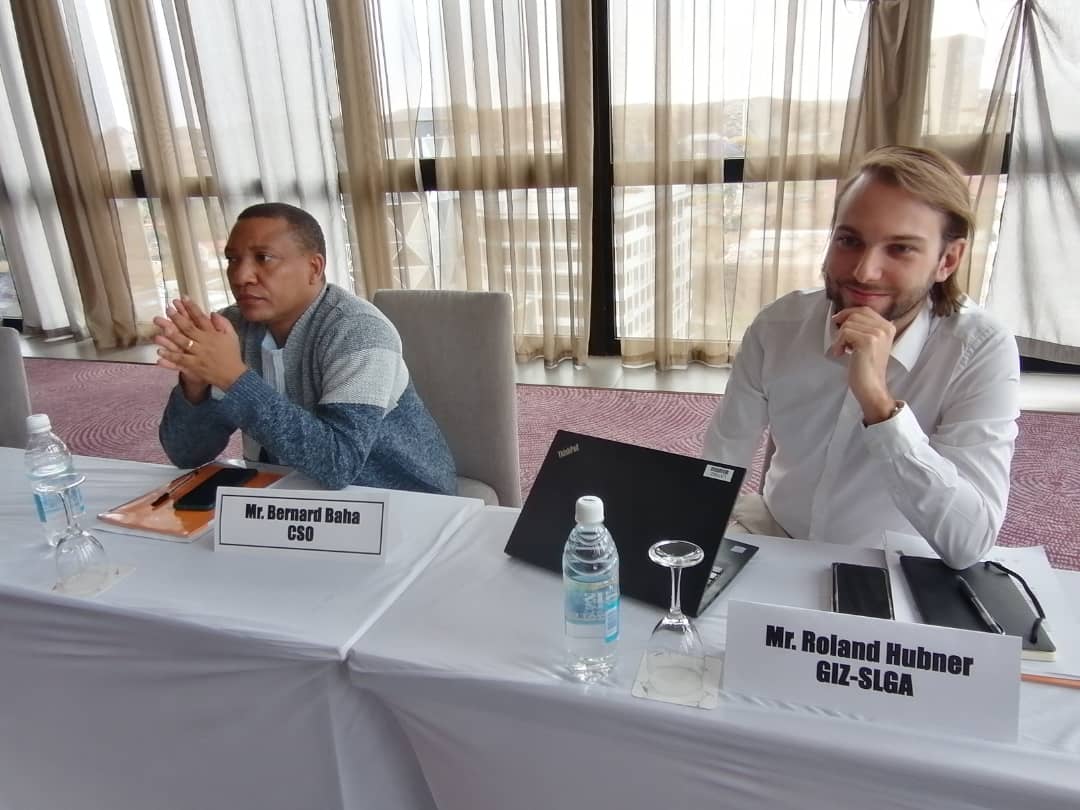
Webinaire NELGA Afrique du Nord : La blockchain au cœur du développement numérique du secteur foncier
La technologie blockchain touche progressivement à tous les secteurs dont la finance, l’énergie, l’assurance ou bien encore la santé. Il est grand temps pour la blockchain d’ancrer son innovation dans le secteur foncier afin d’y apporter la transparence, l’automatisation contractuelle et la traçabilité nécessaires sur un secteur où la preuve, l’historique exhaustif et l’authenticité sont essentielles.
Nous prenons le premier pas vers cette innovation en entamant une discussion entre les acteurs du foncier au Maroc et experts de la Blockchain dans le webinaire “La Blockchain au cÅ“ur de l’innovation numérique du foncier”.
L’Institut Agronomique et Vétérinaire Hassan II organise à travers son hub NELGA Afrique du Nord en collaboration avec ETAFAT et dans le cadre des travaux de recherche sur “L’étude de la technologie Blockchain et ses applications au Foncier : Cas du Maroc” entrepris par Rim Borija.
À travers les interventions d’experts du Maroc et de l’Afrique, nous allons introduire la Blockchain et son potentiel énorme, aux acteurs de l’écosystème foncier au Maroc.
D’éminents panéliste au rendez-vous le 22 septembre à 18h
Dr.Omar Benaicha: Chercheur en Blockchain et Transformation Digitale.
Mohammed Ibrahim Jega: co-fondateur de Domineum Blockchain Solutions.
Samir Bennani: Blockchain Consultant.
Rim Borija: Etudiante en 3ème année en Ingénierie Topographique de l’IAV Hassan II et Chercheuse en Blockchain du Foncier.
Kamal Ben Addou Idrissi: Directeur général de ETAFAT.
Moha El-Ayachi Professeur à l’IAV Hassan II et coordonnateur du réseau NELGA, Afrique du Nord.
Ce webinaire est ouvert aux IGTs du secteur privé et public, Notaires, Experts Fonciers ainsi qu’aux Experts de l’IT et la Blockchain…
Faites part d’une réflexion du futur et inscrivez vous gratuitement sur.
Date : 22 Septembre 2022
Heure: 18H
Vous êtes cordialement invités au webinaire du NELGA NA sur “La blockchain au coeur de l’évolution numérique du secteur foncier” le 22 sept. 2022 à 18:00 GMT+1
Veuillez vous inscrire via le line :
https://us02web.zoom.us/meeting/register/tZEtdOmgrDgtHt0nYq_BETV_gRc_MNRfuVv0
EAC Premiers its Regional Platform on Land
Partner States of the East Africa Community (EAC) are resolute in ensuring the implementation of the African Union (AU) Declaration on land within their respective countries. The resolution follows the sharing of best practices by the EAC Partner States during the first Regional Platform meeting held on 17-18 August 2022 in Kampala, Uganda. The platform provides EAC Partner States with an opportunity to share country lessons and best practices in land policy formulation, implementation and review to inform land reform processes in their respective countries.
“The Regional Platform is the first of its kind in the EAC and is expected to generate discussions and knowledge which will be helpful to all EAC Partner Statesâ€, explains the EAC Secretariat Director of Productive Services Jean Baptiste Havugimana. The forum discussions, he went on to explain, help to promote sustainable development and the rational utilisation of the region’s natural resources.
Joan Kagwanja, the Coordinator of the African Land Policy Centre at the Economic Commission for Africa, applauded the EAC for putting in place a Regional Steering Committee and establishing the Regional Platform, which provides a sustainable mechanism for bringing the Partner States together for the periodic sharing of lessons and dissemination of best practices in land policy formulation and implementation. She noted that land governance issues are cross-cutting within the region and reiterated the need to improve land governance in East Africa to achieve the EAC Vision 2050.
To facilitate the first Regional Platform ALPC provided technical support for a regional assessment to determine the status of land policy development in EAC Partner States. The assessment identified priority and emerging issues, along with the best practices in each of the Partner States, identifying the need for the establishment of a regional platform to facilitate the sharing of lessons and best practices. The participants appreciate the role of the Network of Excellence on Land Governance in Africa, especially the achievement of the Eastern Africa node and its universities in the land policy processes in Partner States; and the potential contribution of the network to the Regional Platform.
Government representatives from Tanzania, South Sudan, Rwanda, Uganda, Kenya and Burundi shared best practices at the forum, including the inclusion of the land rights of women, youth and other vulnerable groups in the land policies, laws and practices of Partner States. The forum called for the EAC secretariat, with the support of ALPC, to enhance capacity building and resource mobilisation for land policy formulation, implementation and review within EAC Partner States.
NOTE TO EDITORS:
The African Land Policy Centre (ALPC) is a joint programme of the tripartite consortium consisting of the African Union Commission (AUC), United Nations Economic Commission for Africa (ECA) and the African Development Bank (AfDB). Its purpose is to lead and coordinate the implementation of the AU Agenda on Land
East Africa Establish Regional Steering Committee on AU Land Agenda
Partner States (PS) from the East Africa region established a Regional Steering Committee (RSC) at the end of a three-day meeting of the Regional Technical Working Group (TWG) on the Terrestrial Ecosystem on July 28. The RSC will oversee and coordinate the implementation of the AU Declaration on land and provide policy and technical guidance to the PS and East Africa Community (EAC) Secretariat on the overall implementation of the AU land agenda. While endorsing the terms of reference for the RSC, Members at the meeting applauded the milestone as an important step and timely for land policy development, review and implementation, especially as some PS are yet to enact comprehensive land policies. The RSC will support technical working groups that will oversee implementation efforts in the region to address capacities and best practices to enhance land reforms in the region.
The African Land Policy Centre (ALPC), charged with the custodian role on the AU land agenda, provided technical support in setting up the RSC in coordination with the EAC secretariat. Joan Kagwanja, the ALPC Coordinator, also commended the TWG’s commitment to the ECA-EAC partnership and the establishment of a multi-sectoral coordination platform at national and regional levels for the PS to share experience, and information, lesson learned and best practices in land policy formulation and implementation.
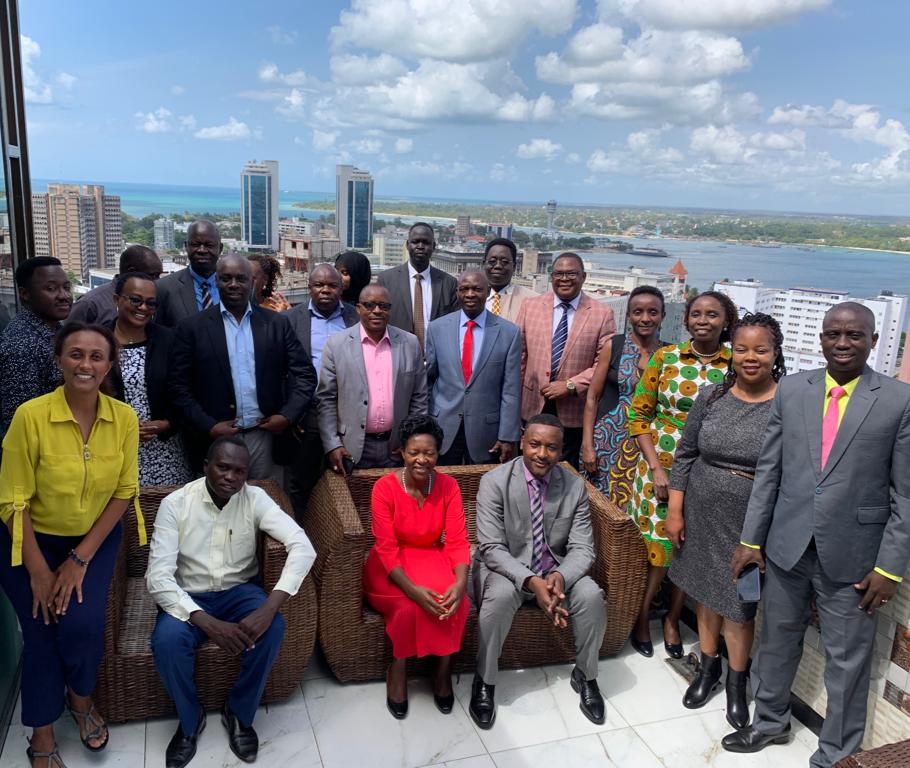
Jean Baptiste Havugimana, Director of Productive Sectors (DPS), EAC Secretariat, stressed the need for Partner States to cooperate in implementing the AU land agenda. He shared insights on the progress made in the EAC region on land governance while stressing the importance of operationalizing the regional land platform by the end of 2022 as it is a crucial directive by the 8th Sectoral Council on Environment and Natural Resources Management.
On capacity development, the PS called on the EAC Secretariat and ALPC to build the capacity of the PS on the AU declaration. They also requested the full engagement of existing Centers of Excellence (CoE) in knowledge sharing that forms the basis for policy review and development, especially as the Centers of Excellence have sectoral knowledge. This will ensure mutual learning and understanding of expectations and support their policies’ alignment with the Framework and Guidelines on Land Policy in Africa.
Moving forward, the PS agreed to hold the first meeting for the RSC in August to discuss the capacity development road map and the coordination role of the RSC to assume leadership.
Partner States Experts’, drawn from ministries and institutions responsible for EAC affairs, land policies development, land use planning and administration, and environment and natural resources management from Tanzania, Kenya, South Sudan, Uganda and Rwanda, attended the meeting.
NELGA, DAAD Announce Second Summer School on Land Governance in Ghana
In February 2019, NELGA held its scholarship holders’ first summer school and research development workshop in Ghana. Hosted by NELGA Anglophone West Africa (AWA) node under Kwame Nkrumah University of Science and Technology (KNUST), the workshop sets the stage for NELGADAAD-scholarship holders to meet experts in land governance, learn and share ideas and network among NELGA scholars and trainers. The first edition of the summer school provided the platform for in-house training on different tools for research data collection and analysis.
Following the success of the 2019 edition, NELGA AWA will organize a second summer school in 2022 to provide further assistance to scholarship holders in personal branding, mentorship and entrepreneurship, which are essential for preparing scholarship holders for the job market. The aim of the summer school is also to allow the NELGA-DAAD scholarship holders to present and discuss their research work, methodological design and preliminary results in a constructive atmosphere. Candidates will receive feedback from external experts, fellow candidates and supervisors. KNUST will compile the experiences of alumni from which current scholarship holders can learn and benefit. At the end of the summer school, a platform will be created and sustained where fellows and alumni will interact and receive regular information and updates on land governance issues, job vacancies, scholarship opportunities for further training and other career development prospects.
Against these backgrounds, the summer school will discuss different concepts, theories and epistemological approaches with supervisors, external experts and researchers; Introduce scholars to time management; Introduce scholars to the art of writing successful research thesis and getting published; Prepare scholarship holders for the job market; and Foster collaboration and networking among scholars, KNUST, and alumni.
Click here to view the course content, trainers, schedule, assessment and other information.
For more information, contact: Patrick.Opoku@giz.de
NELGA DAAD Announces Second Summer School on Land Governance in Ghana
In February 2019, NELGA held its scholarship holders’ first summer school and research development workshop in Ghana. Hosted by the NELGA Anglophone West Africa (AWA) node (Kwame Nkrumah University of Science and Technology (KNUST)), the workshop sets the stage for NELGA DAAD-scholarship holders to meet experts in land governance, learn and share ideas and network with NELGA scholars and trainers. This first edition of the summer school provided a platform for in-house training on different tools for research data collection and analysis.
Following the success of the 2019 edition, NELGA AWA will organize a second summer school in 2022 to provide further assistance to scholarship holders in personal branding, mentorship and entrepreneurship, which are essential for preparing scholarship holders for the job market. The aim of the summer school is also to allow the NELGA-DAAD scholarship holders to present and discuss their research work, methodological design and preliminary results in a constructive atmosphere. Candidates will receive feedback from external experts, fellow candidates and supervisors. KNUST will compile the experiences of alumni from which current scholarship holders can learn and benefit. At the end of the summer school, a platform will be created and sustained where fellows and alumni will interact and receive regular information and updates on land governance issues, job vacancies, scholarship opportunities for further training and other career development prospects.
Against these backgrounds, the summer school will discuss different concepts, theories and epistemological approaches with supervisors, external experts and researchers; Introduce scholars to time management; Introduce scholars to the art of writing successful research thesis and getting published; Prepare scholarship holders for the job market; and Foster collaboration and networking among scholars, KNUST, and alumni.
Click here to view the course content, trainers, schedule, assessment and other information.
For more information, contact: Patrick.Opoku@giz.de
Academia-Industry in Land Governance Forum: Showcasing Opportunities to Bridge Research and Capacity Gaps to Achieve Agenda 2063
The first day of the Network of Excellence on Land Governance in Africa (NELGA) North Africa series of workshops and conferences on The Academia-Industry collaboration in land governance: an emerging opportunity from profit-making to innovation which took place on June 27 in Rabat, Morocco, concluded with a plenary session on research-industry best practices in strengthening academia-industry relationships while meeting industry needs for Africa’s development.
The goal of the session was to discuss, share and disseminate the achieved knowledge for NELGA North Africa and contribute to the capacity development of partners in various domains that have direct linkage with land governance, land policies, and géoinformation technologies. It also includes how this knowledge can make its way into policy and land market spaces. All speakers agreed that land governance efforts are key to achieving the SDGs and African Union Agenda 2063 as land is linked to most development interventions and the academic support needs to be scaled up if sustainable development is to be achieved.
“A well-functioning land market together with high security of land ownership will lead to stronger economic development for Morocco, the North Africa region, and the continent†explains Prof Abdelaziz El Hraiki, Director of IAV Hassan II. He emphasised that essential collaboration with academia can address serious challenges thrown up by land tenure systems which can guarantee sustainable land resources management. The academia provides research insights which are captured in comprehensive frameworks. These frameworks are essential for sustainable development as they focus on best practices and research achievement which can be scaled and adapted to meet the unique needs of AU member states.
Joan Kagwanja, the Chief of UNECA’s African Land Policy Centre (ALPC), agreed with Prof El Hraiki and urged greater collaboration between academia and industry to bridge capacity, research and advisory gaps. The academia trains the policymakers, land professionals, decision-making authorities and other actors. It provides the necessary analysis that forms the basis of the evidence used to develop legal and institutional frameworks. “We identify a real gap between industry and the university. At ALPC, one of the ways we work to close the gaps is by looking at the land curricula across the continent. We have developed an AU endorsed guideline to close these gaps,†explains Kagwanja in addressing best practices for bridging knowledge gaps. She calls for better integration of research efforts within existing land development mechanisms.
In addition to highlighting the role of research in supporting the development of legal frameworks, Kagwanja spoke at length about the creation of the ALPC and the role of the African Union Commission and Africa Development Bank in meeting the AU Land Agenda. The AU Agenda 2063 and the SDG targets call for sustainable land governance. Without an enabling land environment, the continent will not be able to meet its development targets, especially around poverty, zero hunger, gender equity, climate and others, which affect the way resources are managed. Land governance remains a political, economic, health, conflict and development challenge that impacts other economic growth areas. Addressing land governance promotes sustainable development for the continent, she concluded.
NELGA is a program of the ALPC. The ALPC, created through a tripartite partnership of the UNECA, AUC and AFDB is involved in many projects that demonstrate the relationship between academia and research with policy and market spaces, including through NELGA. One of such spaces is the bi-annual Conference on Land Policy in Africa which brings together land stakeholders from across Africa and the globe to discuss new trends, opportunities and resolutions toward sustainable land governance and development in Africa.
Central Africa Validates Research on Cameroon, Chad, CAR Cross-border Conflict
On 28 June 2022, NELGA Central Africa brought together experts on land issues from several Central African countries for a validation workshop on its research on evaluating the triggers and solutions to cross-border conflicts between Cameroon, Chad and CAR through the land lens.
These experts met to enrich the project document on land conflicts between farmers and herders on the three borders of Cameroon, Chad and CAR for validation. The workshop was attended by 20 people who made suggestions on different parts of the document through plenary and group discussions. Professor Tchawa Paul, the coordinator of NELGA CA, who took part in the workshop, hoped that donors interested in the issue would be open to discussions with a view to funding the effective implementation of this project.
In 2021, NELGA Central Africa embarked on baseline research to find lasting solutions to conflicts between farmers and herders along the Cameroon, Chad and CAR borders.
For years, conflicts between farmers and herders in the Sahelian regions have occurred repeatedly. Farmers and herders need spaces that offer appropriate resources to expand their agricultural activities but with the contribution of climate change resources are dwindling and conflicts ensue from the struggle over limited resources which has a huge impact on women who are the primary users of land in rural-border areas.
Although there are innovative practices in finding peaceful resolutions of land conflicts without recourse to the laws, however, these peace terms do not stand the test of time and end up with the destruction of property, loss of life and internally displaced persons.
The meeting provided the opportunity to review and arrive at a consensus on the research and proposed solutions to the land conflict based on the frameworks and guidelines of the African Union thereby looking at sustainable solutions to the management of cross-border land conflicts between Cameroon, Chad and CAR.
NELGA Central-Africa Awards the Best PHD and Master theses on Land Tenure
On Friday 17 June 2022, the NELGA-Central Africa piloted by the University of Yaoundé I and placed under the coordination of Professor Tchawa Paul rewarded the best in the framework of the first edition 2021-2022 of the competition for the best PHD and Master theses on land tenure in Central Africa.
This activity was part of the work plan implemented under the partnership agreement signed between NELGA-Central Africa and GIZ for the implementation of an African Union project on land governance in Africa. The competition registered forty-six applications from Cameroon, Congo, Democratic Republic of Congo, Chad, Gabon and even Senegal; eleven applicants were female. The applications were then analysed by a scientific committee made up of six university professors including geographers, sociologists and jurists. This committee analyses the candidatures based on a set of criteria among which the scientific approach, the originality of the contribution to land governance, the interdisciplinary character and the gender approach.
In front of the fifty or so participants gathered in person and remotely to experience this event, the Coordinator of the NELGA-Central Africa published the names of the six winners. Three were from the PhD theses and the other three were from the master thesis.
The winners were the following.
The PHD thesis are:
- Mr. Kengne Fotso Fabrice of the University of Dschang
- Mr. Bonguem François Engelbert of the University of Yaoundé 2
- Mr. Ndjounguep Juscar of the University of Yaoundé 1
These students won with the respective averages of 15.6, 15.3 and 15.1 over 20. For the Master theses, the three winners were:
- Mrs Safiatou Saïdou of the University of Maroua with an average of 15.3 over 20
- Mrs Agwese Lucy Christiane of the Catholic University of Central Africa with an average of13.8 over 20
- Mr Bubala Wilondja Isaac of the Higher Institute of Rural Development whose average was 13.3 over 20.
This first edition of the 2021-2022 prize-giving ceremony for the best PhD and Master theses was enhanced by the presence of eminent personalities; among them, were the Secretary-General of the Cameroonian Ministry of Lands, Cadastre and Land Affairs (MINDCAF), the Representative of the National Coordinator of the Network of Parliamentarians (REPAR), the Representative of the Agence Universitaire de la Francophonie (AUF), members of the Scientific Committee, and representatives of civil society organisations.
The themes on which the winning students worked were as follows:
- Forestry legislation and securing land rights: the case of Cameroon and Gabon
- Land rights of indigenous peoples in Cameroon
- Participatory mapping: A tool for dialogue and conflict prevention in the communities of Nguti, South-West region of Cameroon
- Socio-cultural determinants and women’s access to land in Maroua: between traditions and social changes
- Gender and the fight against land inequalities in Central Africa: the case of Cameroon
- Effectiveness and relevance of innovations promoted by non-state actors in securing land in South Kivu in Eastern DRC.
In presenting the winners with their provisional cheques, Professor Tchawa Paul congratulated them on their work and called on the non-winning candidates not to be discouraged, but rather to prepare for the next edition. He also invited the students present at the ceremony to stay connected to the NELGA-Central Africa website and even to join the NELGA research WhatsApp group in order not to miss any news in the future.
Moroccan Government, NELGA North Africa Hosts Series of Meetings to Improve Land Academia-Industry Collaboration
From June 27 to 29, 2022, land experts from across Africa will meet in Rabat, Morocco under the invitation of the Minister of Agriculture, Fisheries, Rural Development, Water and Forest, H.E Mohammed Sadiki and NEGA North Africa node, to improve the research-policy synergy in the country and Africa.
This event brings together national, regional, and international experts to build a concrete framework of collaboration between academia and industry in the domain of land policy and land governance. The meeting discussion goes beyond analysing the traditional challenges to an effective academia-industry relationship but also addresses new issues such as developing efficient dialogue and communication platforms which transform research into marketable products.
The three-day event will address the following themes:
- Academia-industry interaction strategy on land policy and land governance,
- Actor’s point of view on land tenure management strategies: what is land governance?
- Land tenure systems and land rights issues regarding women, young people, and the community,
- Regulatory, Institutional, and technical considerations of Land Governance Policy and
- The integration of Géo-ICT in land policy and land governance.
The event will also discuss challenges; addressing questions of how to develop land policy strategies, establish land governance paradigms, and promote research programs that encourage knowledge sharing by creating awareness among researchers about pitching research in the right environment to create greater impact.
It is expected that the meeting will address the main demands of industry towards implementing research-based responses to land policy development while reinforcing knowledge sharing and technology transfer as essential in creating a comprehensive set of best practices and marketable products. It is also expected that the meeting will establish a reference guide on land governance expertise which enables the collaborative framework between academia and the government.
To register, click here: Meeting Registration – Zoom
